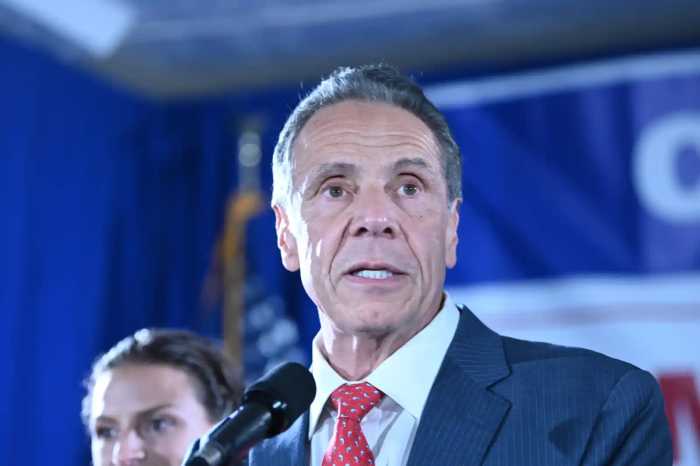Some 95 percent of Americans identify as part of the middle class and working poor. Wages, adjusted for inflation, have stagnated for more than 40 years and good jobs have left our country to places with cheaper labor costs.
Labor is not a “fair game.” People have to work to eat, and a business only hires if it thinks it can make a profit. It is an enormous disparity of power, where real wages will stagnate unless there is some support for labor.
Up until about 40 years ago, labor unions provided that support. They got their power from strong businesses that had pricing power to pass through wage increases. With international competition, business lost pricing power and unions, and therefore, lost their power as well.
And with these changes the middle class and working poor suffered a real body blow with few in political power — our “representatives” looking after them. So many Americans faced the devastation of losing their $25 an hour or higher jobs in the 1980s and were forced into lower or minimum wage jobs due to a failure of public policy that did not support full employment levels of incomes and spending.
So this got us thinking with all of this untapped political power, why not use it? Our middle class could unite around an idea that has the potential of recreating high wages and good benefits.
Creating A Care Economy
This idea is to create a “care Economy.” The idea is not ours alone — a Stony Brook University Economics professor, Stephanie Kelton, elaborates on it fairly well in her recent book “The Deficit Myth”. Kelton envisions the creation of a Federal Job Guarantee (FJG) that financially supports potential millions of jobs with Americans serving the needs of our people in a wide range of part-time and full-time employment. This, she suggests, can be achieved by using principles inherent in Modern Monetary Theory supported by Congress.
$600 Billion Starter Block Grant
A care economy could be funded with a block grant shared with each state and sub-divided within each municipality. Kelton has suggested that our economy has around $600 billion to spend without affecting inflation and without the need to raise anyone’s taxes.
This money would be shared equitably among the states based on needs identified. From the start, this program will be evaluated as to its effectiveness and overall impact on our society. With a positive assessment, additional funding may be needed to fully fund this program.
The federal government would work hand in hand with the states. The states would work hand in hand with each municipality in their state to administer local needs assessment surveys.
Based on these surveys, jobs would be created serving the needs of people. Funds should go toward the creation of online locally administered needs assessments survey portals. A 21st Century Civilian Conservation Corp could be created with these funds creating community gardens and orchards to feed the food insecure. Families’ child care needs could be addressed and funded by this initiative by hiring people to provide free daycare. Seniors would receive the care they need at their homes.
These surveys will be designed to garner as honest of an assessment as possible of the current needs of Americans. In Kelton’s estimate, some 24 billion hours of care could be provided to our nation’s citizens. A print version of these surveys should be sent to each home as well. This data would be used by local governments nationwide to determine needs and formulate job scopes and salaries.
Monies from the block grants administered by the Department of Labor will be sent to municipalities throughout the country with few strings attached, Organizations already in existence that aim to help people in need can assist in the data collecting process, creation of jobs, and in administering some of these programs.
All of these jobs, both part-time and full-time, would come with benefit packages that include sick days, vacation days, and full medical coverage via a low-cost buy-in to Medicare coverage. These jobs in whatever part of the country they are created would need to provide an income that meets the basic monthly requirements for affordable shelter, food, transportation, and utility bills.
A Vibrant New Middle Class Returns to America
By creating a FJG for all who need a job, we would in effect raise overnight the wages and living standards for potentially millions of Americans. Because of the attack on unions in America, the average unskilled middle class laborers have little to no negotiating power. Now the government, by providing living wage jobs throughout the country, would in effect provide leverage for those workers in the private sector, “automatically” pushing wages up for many.
The private sector may have to develop more flexible work-life balance jobs for their workers, similar to the European model in many countries there.
And when the situation is not ideal in any particular low wage job, a FJG frees a person to quit his or her job and work for the government in a meaningful way tied to his or her interests and desires and tied to the needs of each community.
Government is Good and Oh, By the Way, We Are That Government
The notion that the government cannot create jobs is false. Just look at the U.S. military as a prime example. We Americans employ over more than one million people defending us at home and all over the world. Let’s add in all the police, fire, teachers, post office workers, and countless other government-related services to acknowledge the huge role our government already plays in sustaining our economy for so many millions of Americans. It’s about public infrastructure that serves a public purpose.
Adding more workers to the pool will not bankrupt this economy; on the contrary, the economy will grow dramatically. Furthermore, as the issuer of currency, our government can always pay its bills, and never go bankrupt.
If you do not have money to spend, like the average middle class and working poor person these past 40 years, then you will have a weak, slow growth economy. Add, for example, a million more workers to the economy with decent wages and benefits, our economy will be that much stronger.
Already, most European societies have some version of a care economy already in place. The Michael Moore documentaries “Where to Invade Next” and “Sicko” detail many such innovations in place in countries such as Italy, France, Finland, Norway, and Portugal, to name a few societies featured.
For example, in France, government employees help families with assisting mothers with raising their families as cooks, wet nurses, and babysitters, among other roles.
Going on Autopilot
Once Congress votes to both support this idea and fund it, the system will go on autopilot.
We need a caring economy now more than ever.
Covid-19 has exposed how tenuous the economic situation is currently for millions of Americans. And there are millions more — those that have not been counted officially because they are part of the long-term unemployed who would benefit from this program as well.
By creating this caring economy, we would in effect eliminate poverty in America and strengthen the fabric of our economy in the process. Our safety net, which has been weakened these past 40 years, will be shored up. So many other possible changes should occur as well, such as an overall reduction in crime.
Get Active
How can you help promote a care economy? Get active now in joining coalitions around the country that support the creation of such a public initiative. Elect those candidates that take a written pledge to support this concept and supportive legislation.
Voting does matter.
A unified citizenry is the way forward toward rebuilding our middle class and working poor growing a more vibrant economy.
Let’s harness the power of the vote and usher in change agents who pledge to support such an economy.
Democracy is not a spectator sport. A focused population set on bringing about real change can break through the gridlock and inaction that has so colored our politics these past 40 years. The middle class and working poor need to unite to restore our once healthy economy.
Robert Buonaspina is on the board of directors of New York Progressive Action Network, an elected steering committee member of Long Island Activists, and a history and economics teacher at Locust Valley Middle/High School.
Warren Mosler, father of Modern Monetary Theory and president of Valance Company, Inc., assisted with this piece.
Sign up for Long Island Press’ email newsletters here. Sign up for home delivery of Long Island Press here. Sign up for discounts by becoming a Long Island Press community partner here.

































